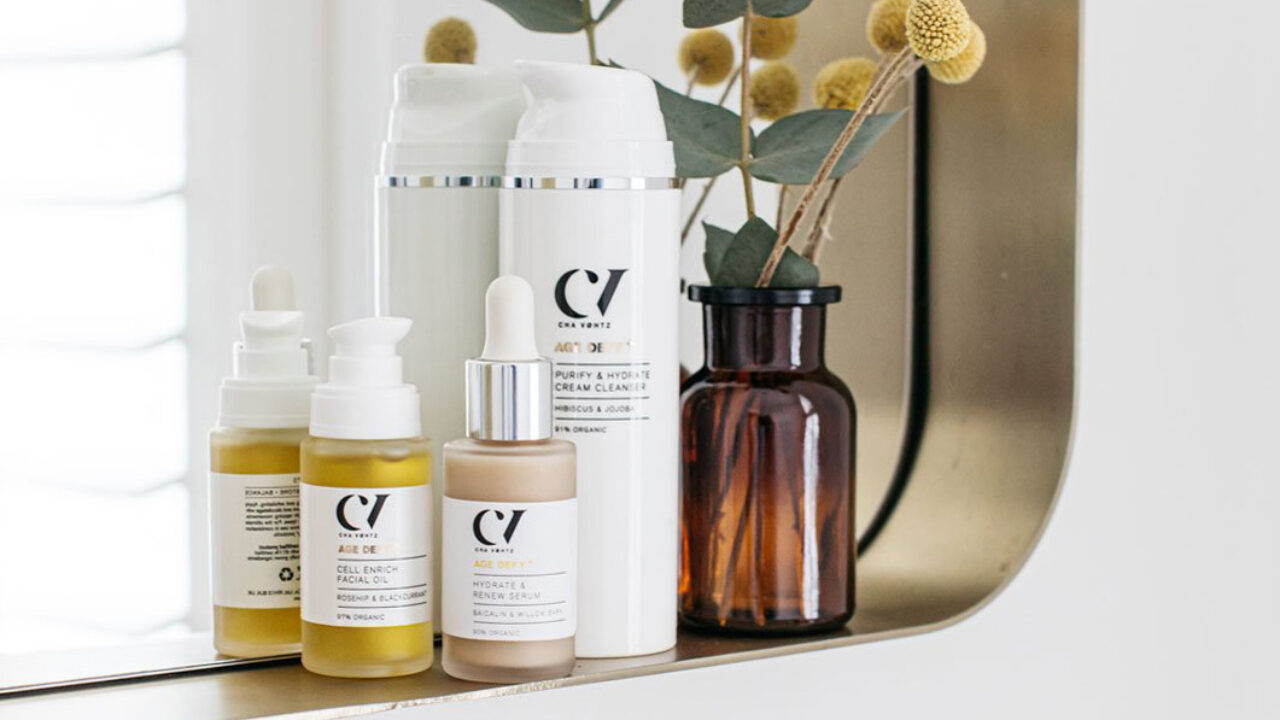
We’ve collated the best beauty products, natural menopause treatments and remedies to help treat the symptoms of peri- and menopause
JUMP TO SECTION
Click the links below to jump to the relevant section:
Menopause treatment for hair loss and hair thinning
Menopause treatment for anxiety, mood swings and lack of sleep
Whether it’s hot flushes, thinning hair, acne or anxiety, conversations around the treatment of menopause symptoms have long been negative.
While all women experience menopause, it’s still an almost taboo subject.
We’ve previously explained what happens to skin and hair during menopause and now we’ve collated the best beauty products, natural treatments and remedies to help treat the symptoms of perimenopause, menopause and post-menopause – even if they’re not a full menopause treatment.
With perimenopause – the years leading up to menopause – and menopause itself comes a change in hormone levels and a decrease in oestrogen and progesterone.
The fluctuations and decreases can trigger an imbalance in the skin.
Lower oestrogen levels result in skin having less collagen, a protein that makes skin strong and elastic, and it can cause hair to thin and fall out. Women going through menopause can suffer from insomnia, anxiety, acne and much more.
Frustratingly, menopausal skin can also be highly sensitive to the ingredients found in many anti-ageing products and other skincare that would typically treat the symptoms at any other time of your life.
Perimenopause causes a number of skin changes that happen in tandem with the changes skin goes through due to general ageing. Oestrogen plays a role in skin tone and skin turnover so women in perimenopause may start seeing more skin tags because the elasticity drops and the skin becomes saggier. An imbalance of testosterone can also cause the skin and bones to become thinner.
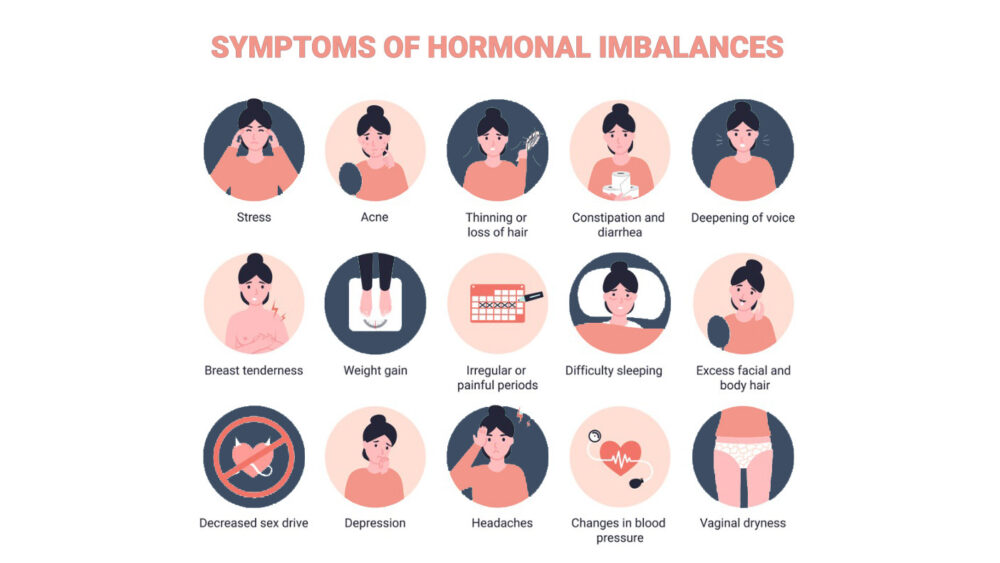 mamabella | mamabella
mamabella | mamabella When it comes to menopause, the demand for natural solutions is on the rise.
Whether you’ve opted out of the HRT route or want natural remedies to supplement your hormonal treatments, there are a number of beauty and health products designed as good menopause treatments for the symptoms of the Change and related issues. One of the most prominent is CBD.
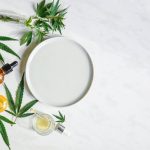 iStock
iStock Cannabidiol, or CBD, has become a hugely popular treatment for a wide variety of conditions, ailments and concerns. The chemical itself comes from a plant called Cannabis sativa and is one of the 113 so-called cannabinoids found in these plants. It’s non-toxic, and safe to use and a study published in 2019, in the journal Cannabis and Cannabinoid Research, found that CBD is great for supporting our immune responses, balancing our mood and helping us sleep.
When it comes to skin, a similar effect is seen. When applied topically, CBD can help the skin to heal faster.
It reduces redness and has anti-inflammatory properties. It’s also been shown to help with the dryness and itching common with menopause and can reduce the triggers of eczema, dermatitis, and psoriasis.
“Your skin is your largest organ and can be the first to feel the changing symptoms of menopause,” said co-founder of sustainable wellness brand Kloris, Kim Smith.
“CBD in the form of skin care products such as oil, face cream or eye cream can utilise the anti-inflammatory properties of CBD combined with natural active ingredients like hyaluronic acid or squalane to hydrate and support stressed skin. Pairing CBD with ingredients like Chaga Mushroom can also help boost collagen synthesis and acts as an antioxidant.”
If you’re keen to know more about CBD generally, check out our What is CBD? guide. Kloris also has a great blog about the benefits of CBD on menopause, if you want to learn more.
We’ve broken down the best skincare for menopausal skin into products suited to your face, and those best suited to your body.
Charlotte Vøhtz, founder of Green People, launched her skincare collection Age Defy+ by Cha Vøhtz specifically with women over forty in mind.
Age Defy+ uses a blend of natural botanicals to target many of the common skincare concerns that arise when going through menopause.
The clean beauty Age Defy+ collection, as with all Green People products, doesn’t contain alcohol, parabens, methylisothiazolinone, SLS, or artificial fragrances. You can read more in our guide to clean beauty
Due to the fact the range was formed with the over 40s in mind, there are a number of products in the range that are effective menopause treatments for a range of symptoms. Our favourites are:
Buy now from All Beauty
Launched by full-time working Mum Jasmine Wicks-Stephens, Faace takes a fresh approach to skincare. Instead of marketing its range of face masks based on ingredients, it promotes the collection based on when, or for what reason, you’ll use them. Its tagline is: “For skincare disrupted by life.”
The most relevant mask for menopausal skin is the Menopause FAACE Mask (£26). As if going through perimenopause and menopause wasn’t tough enough, all of a sudden, your skin starts playing up. It’s thinner, weaker, more vulnerable and void of glow.
In the Menopause FAACE Mask, rosewater soothes and refreshes giving your skin hydration when it needs it; carrot seed and pomegranate oil provide antioxidant properties to keep things plump and healthy; and rosehip oil and its fatty acids partnered with rose flower oil create a youthful glow.
Elsewhere, sea buckthorn acts as a multivitamin with Vitamin C, E and various B vitamins that show up as antioxidants, and immortelle flower oil helps create a youthful glow. Then zinc and geranium tag team on the fight against breakouts.
There is also the Sweaty FAACE Mask (£22.50) to help with skin concerns brought on by hot flushes, and the Period FAACE mask (£22.50) that helps treat some of the symptoms of hormone fluctuations seen during menopause, as well as during periods.
Buy now from Cult Beauty
It isn’t just the skin on your face that is impacted by menopause, your body can also go through the motions.
£36 | Buy now
Lower oestrogen levels caused by menopause mean fat deposits in the skin become concentrated over the stomach, thighs and buttocks.
On the face and neck, the redistribution of fat deposits reduces the thickness of the supportive fat layer beneath the skin which can lead to sagging.
Age Defy+ uses an ingredient extracted from the Bayberry plant to combat cellulite.
It promotes the breakdown of existing fat cells and helps slow down the production of new cells.
FURTHER READING: The best body firming creams, lotions and oils that *actually* work
Buy now from Green People
The best treatments for menopausal hair thinning involve a combination of stimulants such as minoxidil and methyl nicotinate. Also, look out for products that feature ceramides and caffeine.
From £7.99 | Buy now
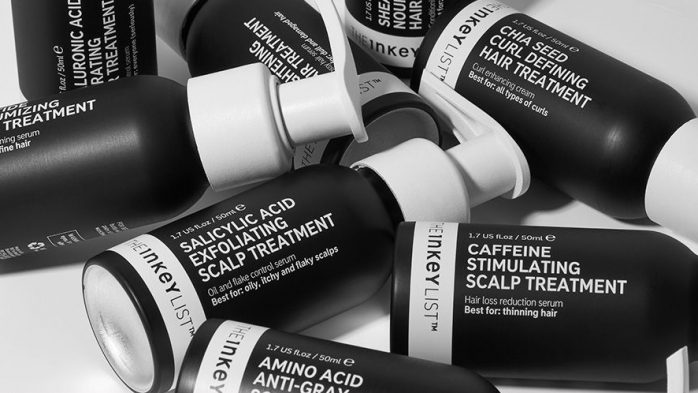 mamabella | mamabella
mamabella | mamabella The Inkey List’s skincare range is one of our absolute skincare faves here at mamabella and the brand recently expanded into a range of super affordable hair care products. After all, your scalp is still covered in skin so it’s not a huge leap!
Buy now from Cult Beauty
£22 | Buy now
Phillip Kingsley’s Scalp Toner is unique in its antibacterial properties, which cleanse the scalp to allow for optimal hair growth and healthier looking hair.
You don’t need to rinse it out either, so it can be used on a wet or dry scalp.
Clients in Philip Kingsley’s Mayfair clinic can also get prescription-only scalp drops, containing a combination of anti-androgenic hormones, as well as a follicle stimulant.
READ NEXT: Best hair masks
Buy now from Lookfantastic
There are hundreds of hair care products on the market, ranging in price but the best we’ve used are those from Grow Gorgeous.
The brand and its products are run by skincare and hair care scientists and specialists and its Original Hair Growth Serum should be a shelf staple in the bathroom for anyone wanting to grow their hair.
Buy now from Grow Gorgeous
New Nordic Hair Volume Supplements are a good menopause treatment to help with hair loss and thinning hair because they contain vitamins that support healthy hair volume and growth including natural apple proanthocyanidine-B2 growth factor. This stimulates hair epithelial cells and boosts your hair follicles, skin and nails.
Although these supplements are great for menopausal women, they equally benefit anyone with hair loss concerns.
It’s important to eat “at least a palm-sized portion of protein at breakfast and lunch” to help ensure that your hair is receiving enough energy for growth. It is also important to keep up Vitamin C, D and E levels – as well as iron and zinc.
It is important to note that too much Vitamin A can lead to hair loss. If you’re struggling to get hair nutrients from your diet you can take supplements. We recommend the VidaGlow Beauty Powders (around £35), and the cheaper Bioglan Superfoods Beauty Protein powders (£12.99).
You can read more about the truth behind beauty supplements in our guide.
FURTHER READING: Skin food: The best foods for clear, healthy skin – and why they work
Research indicates that as many as 60% of women grapple with sleep issues during their menopausal transition. These disruptions can have a profound impact on daily activities and overall well-being.
What’s worse is that poor sleep can be caused by the anxiety that stems from menopausal hormone changes, but a lack of sleep can make anxiety worse. It’s a vicious cycle so they need to be dealt with in tandem where possible.
Pharmaceutical-quality lavender oil – such as Kalms Lavender One-A-Day Capsules – taken orally can improve symptoms of anxiety. Other options include:
Tisserand Aromatherapy’s Real Calm Discovery Kit (£13.45)
Featuring Lavender, Bergamot & Patchouli, this kit blends 100% natural pure essential oils to help you unwind and chill. It contains massage and body oil, MoodFix Mist and Pulse Point Roller Ball.
Tisserand Aromatherapy’s Total De-Stress Bath Oil (£10.20)
This bath oil contains a comforting blend of Geranium, Orange and Nutmeg 100% natural pure essential oils to help calm the symptoms of anxiety.
Tisserand Aromatherapy Sleep Better Pillow Mist (£10.20)
Featuring lavender, which is well known to soothe and calm the mind and body and to prepare you for bed, this mist also contains scents of sandalwood and jasmine. Spray this mist on your bed and pillow before you go to sleep.
Buy now from Lookfantastic
One of the most popular is turmeric. It’s largely revered as a ‘superfood’ because it’s been linked with boosting wellbeing, but it’s also said to have powerful health benefits for those experiencing menopause because of how it helps the body manage oestrogen.
Firstly, turmeric is a great hormone balancer. Its active compound, curcumin, helps your body to detoxify by assisting your liver to modify, inactivate and eliminate toxins and excess substances (including hormones).
Since the liver has a vital role in how your body manages oestrogen, turmeric can support hormone regulation.
By balancing the levels of oestrogen and reducing inflammation within the body, curcumin can also help ease hot flushes, as well as the unwanted skin redness that accompanies them.
What’s more, turmeric has been proven to be an effective skin rejuvenator when used externally on the skin, as well as when taken internally.
In addition to adding more turmeric to your diet naturally, you can also buy turmeric supplements.
The Turmeric Co. sells “shots” designed to increase your intake and there are three versions:
You can currently buy a week’s worth of all three on Amazon for just £20.
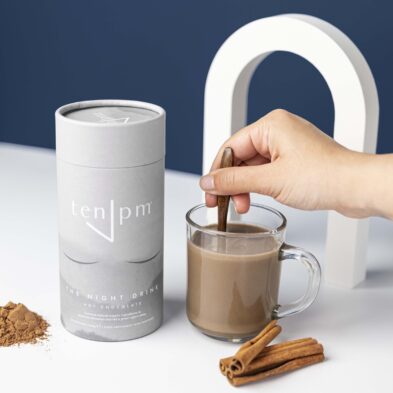 TEN PM
TEN PM Wellness brand TEN PM recently launched The Night Drink, aimed specifically to help with the sleep problems commonly experienced by women undergoing menopause.
Unlike other sleep- or anxiety-focused supplements and drinks, which are usually designed for everyone to take, TEN PM’s The Night Drink has been formulated specifically for menopausal women.
It’s a hot chocolate-style drink that contains a blend of seven natural ingredients that have proven to induce relaxation and sleep. These include magnesium (see our whole section on magnesium below), L-theanine, and L-Glycine.
It’s designed to be consumed about an hour before bedtime and provides what the brand calls a “tranquil and indulgent experience” and helps get the body ready for sleep.
Magnesium is another important mineral that can help relieve menopause symptoms naturally. This is because magnesium plays a role in more than 300 enzyme reactions in the human body meaning it’s vital in maintaining balance and keeping your body in check.
In particular, magnesium can help improve bone health and density. It has been linked with the regulation of serotonin, which can impact your mood and has been shown to help balance testosterone levels. All of which are linked with menopause symptoms.
Magnesium for bone density
“Calcium is the mineral which we all think of when it comes to bone health, as it’s essential for our bodies to help maintain bone density and prevent osteoporosis,” explains Penny Hamilton the co-founder of UK brand Westlab Salts.
“However, the latest research shows that magnesium is equally important in maintaining and strengthening bone density, as it stimulates the hormone calcitonin which helps deposit calcium in the right place.”
If you don’t have sufficient magnesium then the calcium becomes deposited in your soft tissue, instead of your bones.
Magnesium and mood
Serotonin, which is also known as the ‘happy’ hormone, is a neurotransmitter that helps to regulate our moods and is balanced by oestrogen and progesterone levels. When these hormones are disrupted during perimenopause, it can cause serotonin levels to fluctuate and fall.
Studies suggest that magnesium deficiency is also linked with reduced serotonin levels. At the same time, magnesium has been shown to help decrease the stress hormone, cortisol helping to regulate moods further and deal with anxiety.
Magnesium and sleep
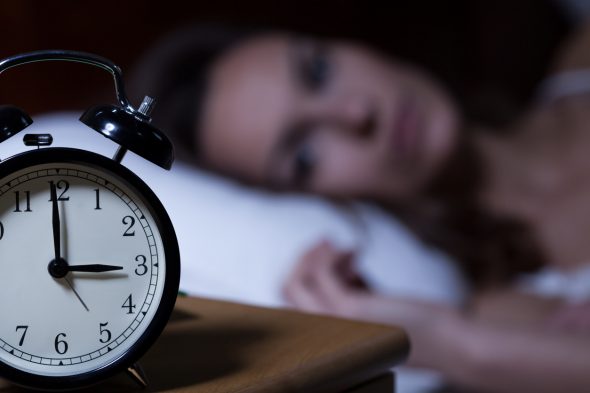 Getty Images/iStockphoto
Getty Images/iStockphoto Our natural levels of melatonin, also known as the sleep hormone, drop off during perimenopause and menopause and this is a leading cause of disrupted sleep. Magnesium supports the processes of the Pineal Gland, which is essential for maintaining the production and regulation of melatonin.
“Magnesium also helps convert glucose into energy, which can help combat extreme tiredness and fatigue – another common symptom which is noticed significantly in perimenopause,” adds Hamilton.
Magnesium and Dry Skin
One of the reasons dry skin is a symptom of peri- and menopause is because oestrogen is responsible for supporting the production of oils, collagen and our skin’s ability to retain moisture. Any disruption to this hormone can impact the skin.
Magnesium deficiency has a similar effect because magnesium helps with the regulation of fatty acids and the production and bonding of collagen and elastin. Magnesium is also essential for cell regeneration and the production of antioxidants, as well as supporting skin hydration.
In addition to taking magnesium supplements – like those from Holland & Barrett (£2.99) – magnesium bathing using bath salts can help replenish the skin because it has a soothing effect on dry, itchy skin by softening the water, reducing irritation and helping to protect the skin barrier.
MAMABELLA TIP
A long-term study by the Women’s Health Institute, that ran from 1993-2002, raised concerns that taking a combined pill-form of HRT increased a woman’s risk of breast cancer by as much as 75%.
This resulted in many women turning away from HRT, or being scared to try it. This study has since been criticised.
In 2015 and 2019, the National Institute for Health and Care Excellence (NICE) updated its guidelines to say HRT with oestrogen alone is associated with ‘little or no change in the risk of breast cancer.’
HRT, or hormone replacement therapy, is a treatment that helps replace or balance out the hormones women lose during perimenopause and menopause. Namely, oestrogen and progesterone.
Treatment involves either taking both hormones (combined HRT) or oestrogen-only HRT.
The latter is only recommended if you’ve had a hysterectomy and both need to be prescribed by your GP.
There has been a lot of controversy around HRT in the past.
This is because older forms of HRT rely on synthetic, artificial forms of progesterone, and an oestrogen replacement typically made from mare’s urine (seriously). These were usually prescribed in pill form.
Modern forms of HRT are made using body identical hormones.
These hormones mimic the chemical structure found naturally in women, and the treatments are available as sprays, gels or patches – known as transdermal HRT.
Due to the fact bioidentical HRT uses hormones that mimic those created in the body, studies have reported fewer side effects including a lower risk of breast cancer than highlighted in the WHI study.
What’s more, transdermal HRT lowers the risk of breast cancer further because the hormones aren’t being transported into the body via the liver.
Medical reports found that it was the metabolism of oestrogen as it travelled through the liver when delivered in pill form, that was linked to increased instances of breast cancer, as well as blood clots and strokes.
Delivering oestrogen via the skin lowers this risk, even for women with a past history of these conditions.
Elsewhere, there is limited data about how Black and South Asian women experience the menopause.
There is some evidence that they experience it earlier than white women, and have different symptoms and different experiences with health professionals – for example, Black women are less likely to be prescribed HRT, according to Nina Kuypers, Founder of Black Women in Menopause.
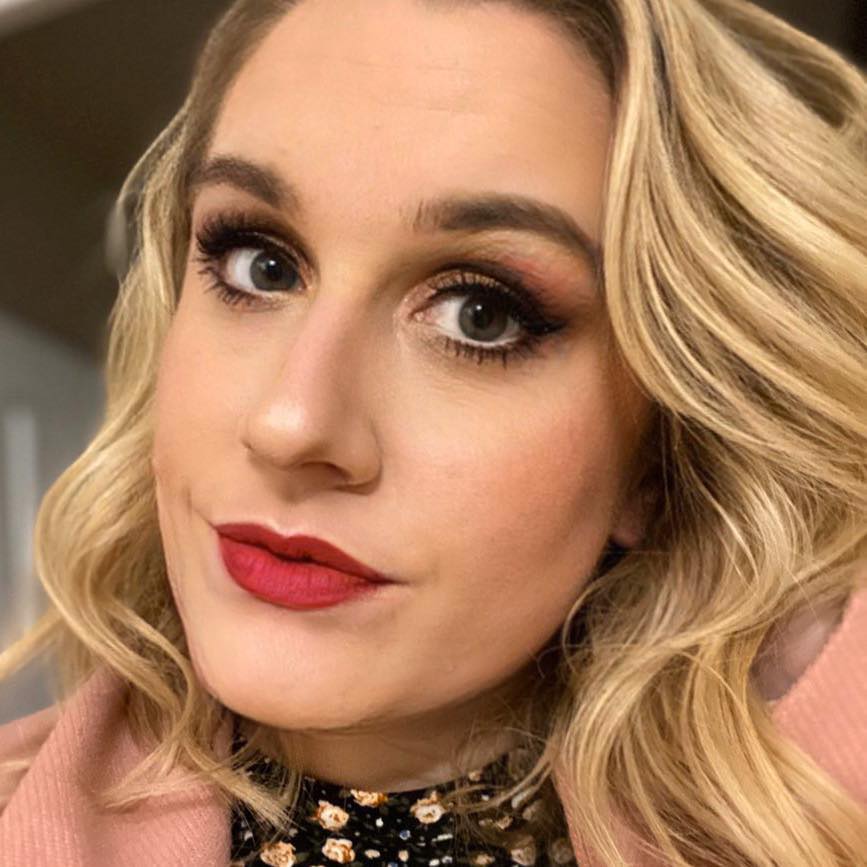
Victoria is founder and editor-in-chief of mamabella, freelance journalist and Mum. She has a passion for empowering people to feel beautiful whatever their age, size, skin type and budget
